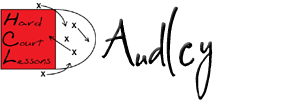So I'm a pretty active guy when it comes to
Twitter and the more I use it, the more I find it becomes my go to source for news, updates and general time wasting.
I happen to be following a web & graphic designer from
Minneapolis, MN by the name of Mike Lane.
Now on the surface, you'd think that he and I don't have a whole lot in common and I wouldn't blame you for thinking that way.
Afterall, I'm a
self professed hoops junkie that uses basketball to help people develop both personally and professionally and he talks about performance optimization, HTML and web design stuff.
What could we possible have in common??

Well, after
reading his tweet that provided 10 tips on being more productive, I was quickly reminded of a Hard Court Leadership lesson.
No matter the situation, circumstance or players involved, there are a ton of valuable lessons we can learn to make us better leaders. It's up to us to use our court vision to spot them. Here are the 10 tips that
Mike shared via
Clare Evans, author of
Time Management for Dummies.Thanks Mike!1. Plan
If you want to make the biggest difference to your productivity, plan your time. You’ll ensure you’re focusing on the right things and using your time more effectively.
2. Systems and PrioritiesWhen you’ve got to much to do, don’t expect to do it all. Make the best use of your time by
focusing on what’s important.
3. Delegate
The busier you are the more you need to delegate. Spend your time on important tasks that no one else can do rather than day-to-day tasks.
4. Distractions and interruptionsWe’d get more done if we didn’t keep getting distracted or interrupted. Whether it’s emails, phone calls or people stopping by our office without an appointment, interruptions are part of every working day.
5. Learn to say No!Busy people often say yes to everything.
Get back control of your time by saying ‘No’.
6. Manage your emails Email can be one of the biggest distractions and drains on our time. Particularly if you find yourself constantly checking your inbox. Unless they’re a critical part of your work, they rarely need to be responded to immediately.
7. Setting Expectations If you spend time working with other people, it’s important to set expectations. Let them know what it is you want and when. Don’t let other people’s actions create added effort and pressure for you.
8. Procrastination Many people have a tendency to put things off. If the task is worth doing, don’t make it worse by leaving it. Do it sooner rather than late. Here are a few ways to deal with it:
9. Taking Breaks Even if you’re busy, you need to take regular breaks. How often do you work through your lunch break or don’t take a break until it’s time to finish for the day?
10. Keep the balance Working hard is all very well, but if you focus all your time and effort on work, other areas are likely to suffer.
See you on the court!


































